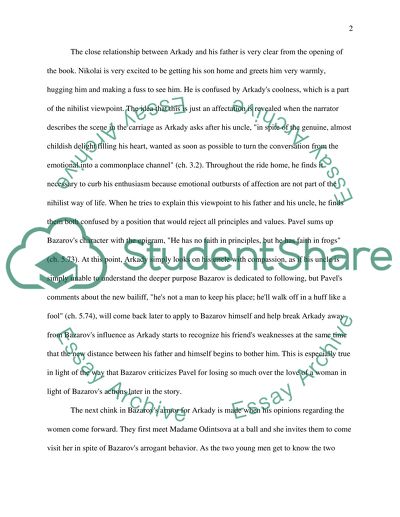Cite this document
(“Fathers and Children by Turgenev Essay Example | Topics and Well Written Essays - 1000 words”, n.d.)
Retrieved from https://studentshare.org/literature/1410841-fathers-and-children-by-turgenev
Retrieved from https://studentshare.org/literature/1410841-fathers-and-children-by-turgenev
(Fathers and Children by Turgenev Essay Example | Topics and Well Written Essays - 1000 Words)
https://studentshare.org/literature/1410841-fathers-and-children-by-turgenev.
https://studentshare.org/literature/1410841-fathers-and-children-by-turgenev.
“Fathers and Children by Turgenev Essay Example | Topics and Well Written Essays - 1000 Words”, n.d. https://studentshare.org/literature/1410841-fathers-and-children-by-turgenev.


